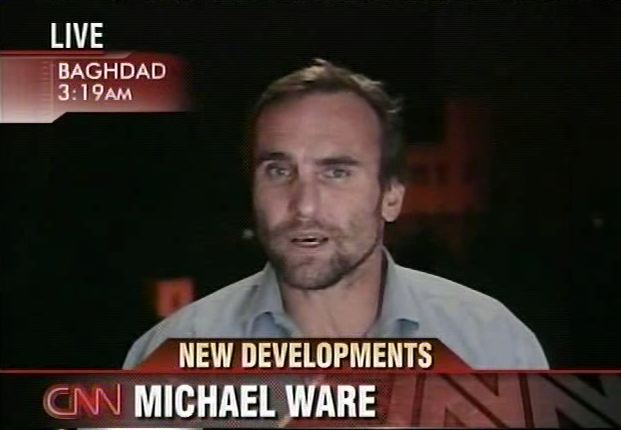TSR: "We can only do so much"

Click photo to play
Length: 4:11
WOLF BLITZER: A classified U.S. military intelligence report reportedly paints a very dire picture of the situation in Iraq's western Anbar province. "The Washington Post" cites sources as saying the report being very pessimistic and says there's almost nothing the United States can do to improve the political and social situation there.
CNN's Michael Ware just came back from an embed. He was with U.S. forces in Ramadi. Michael, how bad is the situation out there?
MICHAEL WARE, CNN CORRESPONDENT: Wolf, it's absolutely nightmarish and "The Washington Post" story is an old one. U.S. military intelligence has been saying this about Ramadi for a year and a half. I've been going out there since 2003. I've watched the steady decline.
Quite frankly, America is not committed to the fight. It is known -- it is a stated fact that this is the headquarters of al-Qaeda in Iraq, yet American commanders privately off camera will tell you that we only have a third of the troops there that are needed to even begin to make a dent in al-Qaeda -- Wolf.
BLITZER: Sounds like militarily if the U.S. devoted a much greater number of troops they might be able to make some progress, but this "Washington Post" report suggests that politically the situation already is lost even if it isn't lost perhaps militarily.
WARE: Well, it's not losing militarily. The boys out there are just simply holding the line. But they've been put into the meat grinder for the sake of concentrating troops in Baghdad. Politically it's an absolute disaster out there. The potential American allies out there are essentially the Baath Party and the Sunnis. Now these Sunnis -- I spoke to one of these insurgents this morning. I spoke to some Ramadi sheiks, and I spoke to Iraqi police in Ramadi, as well as American commanders.
What's happening is they see that in Baghdad America is empowering their old enemy Iran through its Iranian proxies who are now in government. They see that they're being herded towards al-Qaeda because they have no other choice.
When they do try to break free, the Americans and the Iraqi army are not strong enough to inhibit al-Qaeda's intimidation and assassination campaigns. So al-Qaeda has got the discipline and they're seeing that no matter what the commanders on the ground say -- the Americans in Ramadi -- in Baghdad, central government is being given to Iran. Baghdad had cut off sugar supplies to al-Anbar and no one can explain it, Wolf.
BLITZER: So is al-Anbar, which is a huge province, as you know, Michael, is al-Anbar province now effectively becoming a place where the insurgents have free rein, if you will. They can create their own state within a state?
WARE: It's not quite to that degree, but I mean, Anbar is the barometer for the Sunni insurgency war. You want to know where it's going, you want to know its shifting moods, then you dip your toe in al-Anbar. Now what I can tell you, for example, is that there is an area north of Ramadi, just across the Euphrates River called Jazeera. Now, military intelligence knows that that's where al Qaeda leader Abu Musab al-Zarqawi would hide, would meet, would rest, would have his planning sessions.
His replacement now does the same. That is their central headquarters. Zawahiri, al-Qaeda's number two to Osama bin Laden, said, "it's from there that we will build the caliphate." Well, in this area about the size of New Hampshire, you've only got a couple of hundred troops, maybe 300; less than a battalion. And the commanders there on the ground admit "we can only do so much. We are not disrupting them, even though we know that this is their headquarters" -- Wolf.
BLITZER: Michael Ware on the scene for us. He's going to be having a lot more of these reports, exclusive reports. He just came back from an embed in Ramadi. Michael, thanks very much. Please be careful out there.
